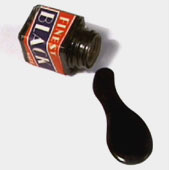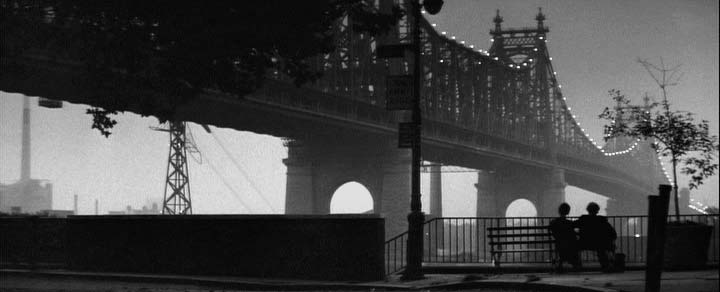In honor of Woody Allen’s 77th birthday, what began as the idea for a few links to my favorite sequences from his movies morphed into a longer series of posts. So here is my take on the flicks of a veteran filmmaker.
The title sequence in “Manhattan”
“Manhattan” used to be one of my favorite movies. It used to make me nostalgic for the New York I first encountered when I came here at nine: gritty, cosmopolitan, melancholic, maddening. It was a city slowly emerging from the verge of the urban equivalent of a nervous breakdown. I loved the movie in spite of the fact that it reminded me of a sad period in my life. I always found that odd, but then I realized that “Manhattan” also represented for me the only escape hatch I had as a kid. It gave me the raw materials for the adult life I imagined I’d have: sophisticated, intellectual, cultural, intense. I’d get together with my smart friends in dark and smoky bistros to discuss books and movies. I’d write and have passionately dysfunctional affairs with fascinating characters. A weird dream to aspire to, I know, but that was the kind of kid I was.
This is what I held unto through those rough and lonely days, and this was the nostalgia that watching “Manhattan” would rouse in me as an adult: a longing for that version of Manhattan I’d created in my head. A few years ago I rewatched it again. Older, more content with the present version of Gotham I inhabited, “Real Housewives of New York City” notwithstanding, I could now let go of the fantasy and see the people in it for the selfish assholes they were. I watched with annoyance and increasing outrage at Woody’s involvement with the teenage Tracey, played by Mariel Hemingway. The parallels with the real-life Soon-Yi affair were both disturbing and unsavory. Suddenly, I could no longer see why I had once loved this movie.
Except, that is, when it comes to the opening sequence. It’s funny, rousing, romantic, and just plain beautiful as it depicts New York back when it was still New York and not the glorified shopping mall it’s devolved into. (Yeah, I know that sounds snobby. Deal with it.) Plus, it captures all the grand passion and mixed emotions that we who love this dirty city feel for it. Cynics that we are, we hide it behind perpetual sneers and sarcastic wisecracks, but some of us still love this filthy town madly, devotedly, beyond reason.
Radio Days
In interviews, Allen is notoriously bitter about his parents and childhood, which is why the sweet and sentimental “Radio Days” is so refreshing. This is Allen’s “Amarcord” and it shares certain similarities with Fellini’s classic; it takes place in the wartime Brooklyn of his childhood, in a mostly Jewish neighborhood that might as well be a small town. Similarly, there is no plot, instead it is framed around a series of vignettes — a pretty challenging structure to pull off without it coming off as haphazard or incomplete.
I think what makes this movie delightful is that it accurately portrays the way a child sees the world and its dangers: as a grand adventure he can’t wait to undertake. It’s a slightly cartoonish version of reality, undoubtedly, but the movie avoids being cloying precisely because it feels authentic to a child’s experience. Another wonderful thing that it has in common with Fellini is the lack of beautiful actors. Yes, there’s Mia Farrow and she’s gorgeous and Dianne Wiest is also very pretty but, by and large, Allen cast actors who are recognizably real, unglamorous, flawed, human. Even if you didn’t grow up in a Jewish household in Brooklyn during the 40s, you still feel like you know these people: the awkward chubby teenage cousin; the hapless romantic spinster aunt; the bickering parents. Plus, who among us didn’t dress up and sing in front of a mirror as a teen?
Along with the grander drama of wartime, there’s the petty annoyance of getting along with other fallible people. In depicting both struggles as equally important, Radio Days is poignant and funny, one of Allen’s most compassionate films. I hate to use the word “heartwarming,” but, man, for a guy who’s this bitter — and for no good reason, Woody, most of us would love to have a successful career spanning six decades, date gorgeous people, and keep working at what we love –, it’s a relief.
Check back tomorrow for Part II!

